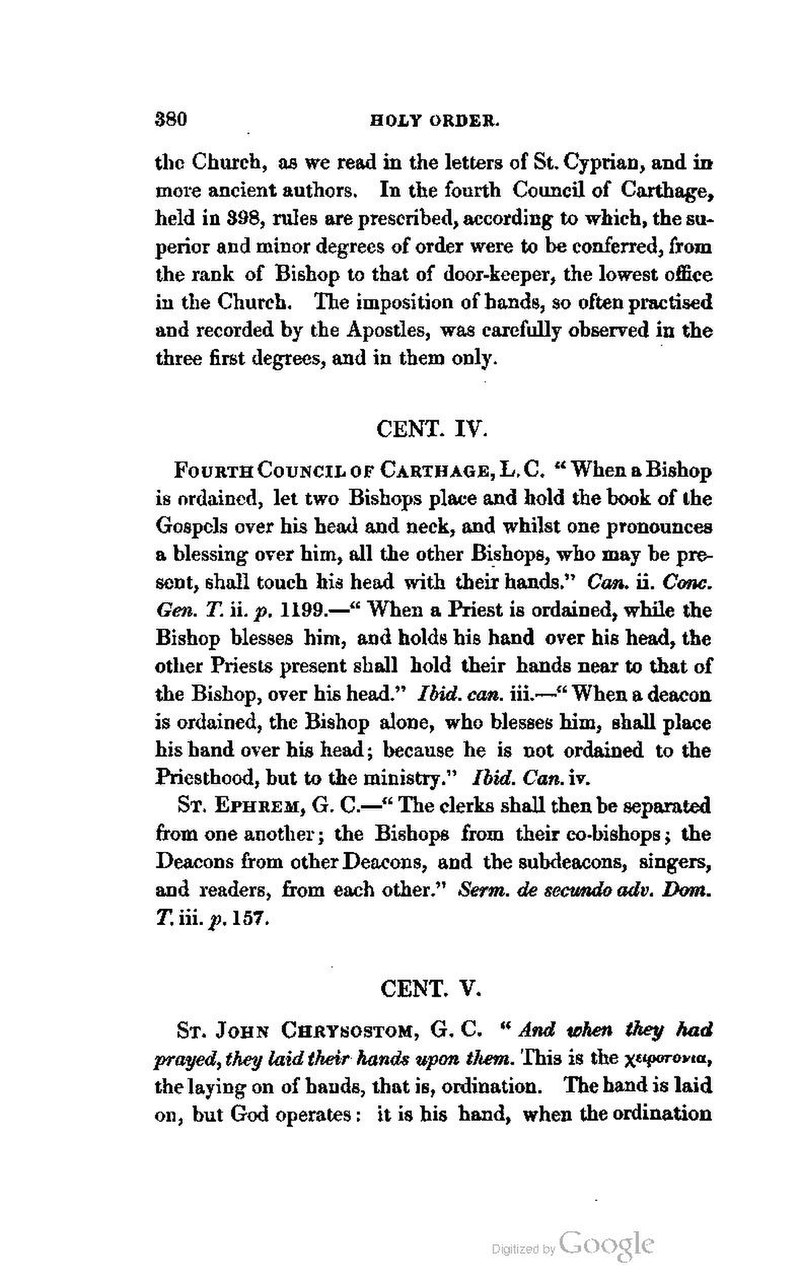the Church, as we read in the letters of St. Cyprian, and in more ancient authors. In the fourth Council of Carthage, held in 398, rules are prescribed, according to which, the superior and minor degrees of order were to be conferred, from the rank of Bishop to that of door-keeper, the lowest office in the Church. The imposition of hands, so often practised and recorded by the Apostles, was carefully observed in the three first degrees, and in them only.
CENT. IV.
FOURTH COUNCIL OF CARTHAGE, L.C. “When a Bishop is ordained, let two Bishops place and hold the book of the Gospels over his head and neck, and whilst one pronounces a blessing over him, all the other Bishops, who may be present, shall touch his head with their hands.” Can. ï. Conc. Gen. T. ii. p. 1199.-“When a Priest is ordained, while the Bishop blesses him, and holds his hand over his head, the other Priests present shall hold their hands near to that of the Bishop, over his head.” Ibid. can. iii.—“When a deacon is ordained, the Bishop alone, who blesses him, shall place his hand over his head; because he is not ordained to the Priesthood, but to the ministry.” Ibid. Can. iv.
St. EPHREM, G. C.-" The clerks shall then be separated from one another; the Bishops from their co-bishops; the Deacons from other Deacons, and the subdeacons, singers, and readers, from each other.” Serm. de secundo adv. Dom. T. iii. p. 157.
CENT. V.
St. John CHRYSOSTOM, G. C. “And when they had prayed, they laid their hands upon them. This is the Xelpotovia, the laying on of hands, that is, ordination. The hand is laid on, but God operates: it is his hand, when the ordination
